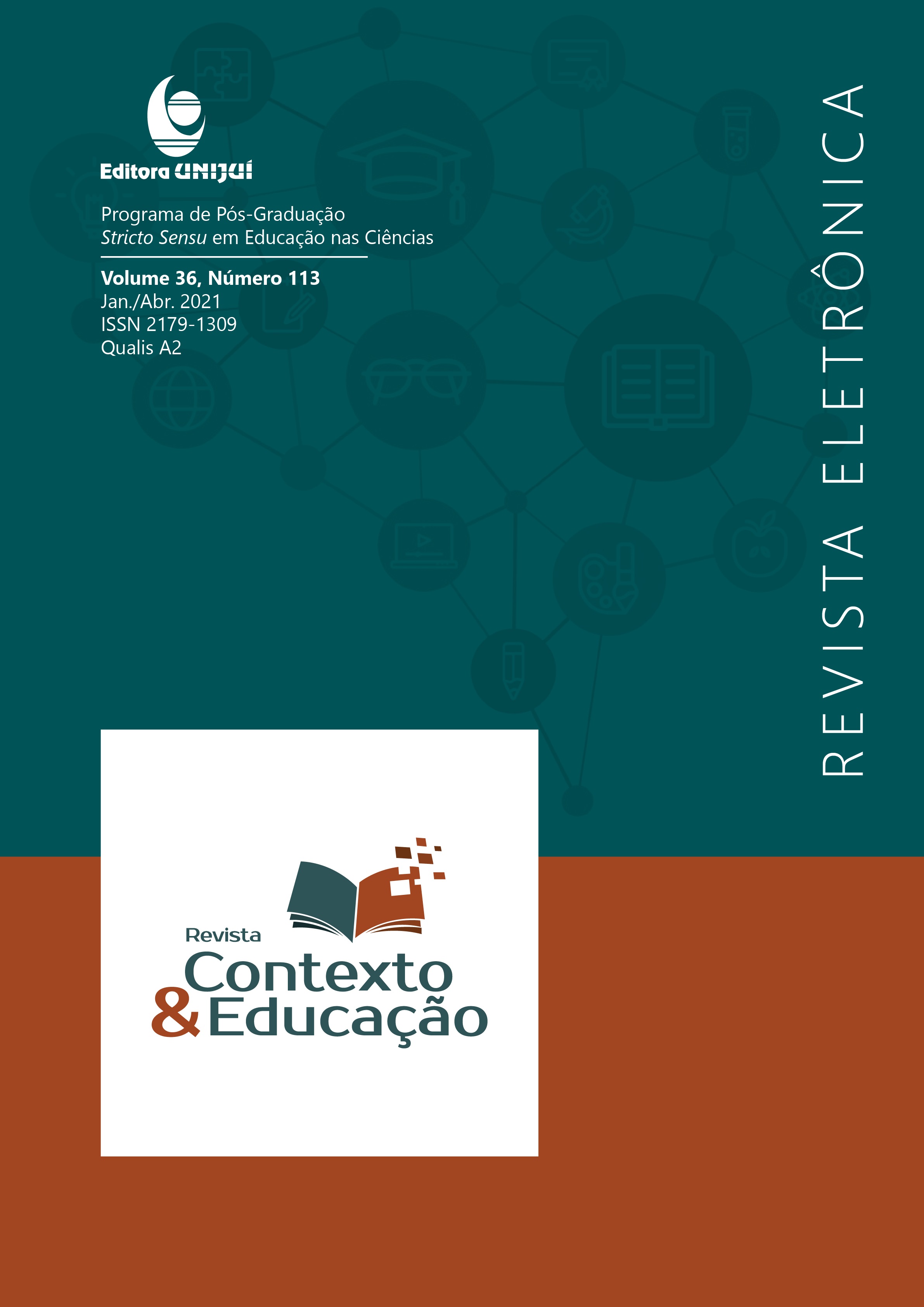CURRÍCULO INTEGRADO NA EDUCAÇÃO PROFISSIONAL: CONCEPÇÕES DE ALUNOS E PROFESSORES SOBRE PROJETO INTEGRADOR
DOI:
https://doi.org/10.21527/2179-1309.2021.113.413-432Palavras-chave:
Educação Profissional e Tecnológica; Currículo Integrado; Projeto Integrador.Resumo
Este artigo tem por objetivo verificar a percepção de um grupo de professores e de alunos a respeito dos limites e possibilidades da realização de um projeto integrador em uma instituição de Educação Profissional e Tecnológica, na tentativa de efetivar o currículo integrado. Para a metodologia foi utilizada a pesquisa participante. Como resultados, constatamos que o projeto integrador colabora de maneira significativa no processo de ensino e aprendizagem, inclusive na temática proposta, qual seja, as corporalidades indígenas, pois buscou a integração entre as diversas áreas do conhecimento. Como pontos positivos apontamos a aproximação das disciplinas, a valorização da diversidade cultural, a realização de atividades interdisciplinares e a diminuição da quantidade de atividades avaliativas. Já como pontos negativos, temos o pouco tempo para a realização da proposta, a falta de espaços adequados para a sua preparação e a ausência de comprometimento de alguns professores e alunos. O desenvolvimento dessa pesquisa nos mostrou que o projeto integrador é uma ferramenta valiosa para a implantação do currículo integrado no ambiente escolar, sobretudo na Educação Profissional e Tecnológica. Contudo, o seu êxito está condicionado a maior articulação de esforços entre gestores públicos, gestores escolares, professores e alunos.
Downloads
Publicado
Como Citar
Edição
Seção
Licença
Ao publicar na Revista Contexto & Educação, os autores concordam com os seguintes termos:
Os trabalhos seguem a licença Creative Commons Atribuição 4.0 Internacional (CC BY 4.0), que permite:
Compartilhar — copiar e redistribuir o material em qualquer meio ou formato;
Adaptar — remixar, transformar e criar a partir do material para qualquer fim, inclusive comercial.
Essas permissões são irrevogáveis, desde que respeitados os seguintes termos:
Atribuição — os autores devem ser devidamente creditados, com link para a licença e indicação de eventuais alterações realizadas.
Sem restrições adicionais — não podem ser aplicadas condições legais ou tecnológicas que restrinjam o uso permitido pela licença.
Avisos:
A licença não se aplica a elementos em domínio público ou cobertos por exceções legais.
A licença não garante todos os direitos necessários para usos específicos (ex.: direitos de imagem, privacidade ou morais).
A revista não se responsabiliza pelas opiniões expressas nos artigos, que são de exclusiva responsabilidade dos autores. O Editor, com o apoio do Comitê Editorial, reserva-se o direito de sugerir ou solicitar modificações quando necessário.
Somente serão aceitos artigos científicos originais, com resultados de pesquisas de interesse que não tenham sido publicados nem submetidos simultaneamente a outro periódico com o mesmo objetivo.
A menção a marcas comerciais ou produtos específicos destina-se apenas à identificação, sem qualquer vínculo promocional por parte dos autores ou da revista.
Contrato de Licença (para artigos publicados a partir de outubro/2025): Os autores mantém os direitos autorais sobre seu artigo, e concedem a Revista Contexto & Educação o direito de primeira publicação.


